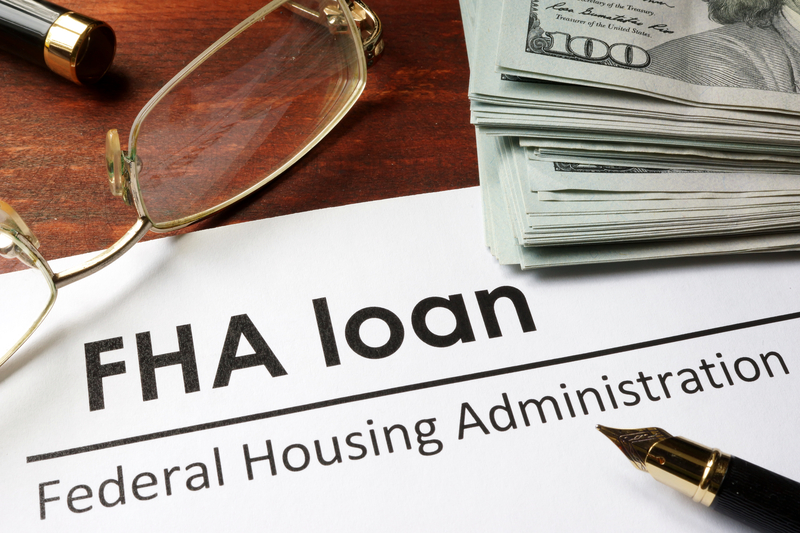Benefits of FHA Loan
When it comes to financing your dream home, the Federal Housing Administration (FHA) loan can be a great option. With its flexible eligibility criteria and numerous advantages, an FHA loan can help you achieve your homeownership goals. In this article, we will explore the benefits of FHA loans and why they are worth considering.
Low Down Payment
One of the most attractive features of an FHA loan is the low down payment requirement. Unlike conventional mortgages that typically require a 20% down payment, FHA loans only require a minimum down payment of 3.5%. This makes homeownership more accessible for individuals who may not have substantial savings for a larger down payment.
Flexible Credit Requirements
Another advantage of FHA loans is their flexible credit requirements. While traditional lenders may have strict credit score criteria, FHA loans are more forgiving. Borrowers with lower credit scores, as low as 580, may still be eligible for an FHA loan. This opens up opportunities for individuals with less-than-perfect credit histories to become homeowners.
Assumable Mortgages
An interesting feature of FHA loans is that they are assumable. This means that if you decide to sell your home, the buyer can take over your FHA loan, including its favorable terms and interest rate. This can be a significant selling point and make your home more attractive to potential buyers.
Competitive Interest Rates
FHA loans often offer competitive interest rates. The FHA, being a government agency, can negotiate lower rates with lenders, making homeownership more affordable for borrowers. By securing a lower interest rate, you can potentially save thousands of dollars over the life of your loan.
Streamlined Refinancing
If you already have an FHA loan, you can take advantage of streamlined refinancing options. This allows you to refinance your existing FHA loan with minimal documentation and paperwork. Streamlined refinancing can help you secure a lower interest rate or switch from an adjustable-rate mortgage to a fixed-rate mortgage, providing more stability and potentially reducing your monthly mortgage payments.
Lenient Debt-to-Income Ratio
FHA loans also offer more flexibility when it comes to the debt-to-income ratio (DTI). While conventional loans typically have stricter DTI requirements, FHA loans allow borrowers to have a higher DTI ratio. This means that even if you have other debts, such as student loans or credit card debt, you may still qualify for an FHA loan.
Mortgage Insurance
It’s important to note that FHA loans require mortgage insurance. However, this insurance protects lenders in case of default, allowing them to offer more favorable terms to borrowers. The upfront mortgage insurance premium (MIP) and annual MIP can be added to your monthly mortgage payments. Although this adds an addit enables you to secure a loan with a lower down payment and more lenient credit requirements.

Overall, FHA loans offer numerous benefits that can make homeownership more attainable for many individuals. From the low down payment requirement to the flexible credit criteria and assumable mortgages, FHA loans provide opportunities for a wider range of borrowers. If you are considering buying a home, it is worth exploring FHA loan options and consulting with a qualified mortgage professional to determine if it is the right choice for you.
Frequently Asked Questions about the Benefits of FHA Loan
1. What is an FHA loan?
An FHA loan is a mortgage loan insured by the Federal Housing Administration (FHA), which is a government agency within the U.S. Department of Housing and Urban Development (HUD).
2. What are the benefits of an FHA loan?
Some of the benefits of an FHA loan include lower down payment requirements, easier qualification criteria, and competitive interest rates.
3. How much is the down payment for an FHA loan?
The minimum down payment for an FHA loan is typically 3.5% of the purchase price or appraised value of the property, whichever is lower.
4. Can I use an FHA loan to buy a home for investment purposes?
No, FHA loans are intended for owner-occupied properties only. They cannot be used to finance investment properties or second homes.
5. Are there income limits for FHA loans?
No, there are no specific income limits for FHA loans. However, borrowers must demonstrate their ability to repay the loan and meet certain debt-to-income ratio requirements.
6. Can I refinance my existing mortgage with an FHA loan?
Yes, FHA loans offer refinancing options, including cash-out refinancing, for borrowers who meet the eligibility criteria.
7. How does the FHA loan compare to a conventional loan?
FHA loans are often more accessible for borrowers with lower credit scores and limited down payment funds compared to conventional loans. However, FHA loans may have higher mortgage insurance premiums.
8. Can I use an FHA loan to buy a fixer-upper property?
Yes, FHA 203(k) loans are specifically designed for purchasing and renovating fixer-upper properties. These loans provide funds for both the purchase and renovation costs.
9. Are there any restrictions on the type of property I can buy with an FHA loan?
FHA loans can be used to purchase a variety of property types, including single-family homes, multi-family properties (up to four units), condominiums, and manufactured homes.
10. How can I apply for an FHA loan?
To apply for an FHA loan, you can contact an FHA-approved lender who will guide you through the application process and help determine your eligibility.




